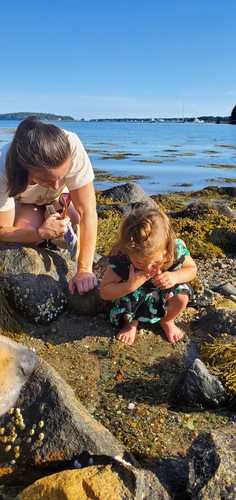Keywords: Can Plant
Item 37246
American Can plant demolition, Lubec, 1992, 1992
Contributed by: Lubec Historical Society Date: 1992 Location: Lubec Media: Photographic print
Item 37247
American Can plant demolition, Lubec, 1993, 1993
Contributed by: Lubec Historical Society Date: 1993 Location: Lubec Media: Photographic print
Exhibit
Early Fish Canneries in Brooklin
By the 1900s, numerous fish canneries began operating in Center Harbor, located within the Brooklin community. For over thirty years, these plants were an important factor in the community.
Exhibit
Maine's corn canning industry, as illuminated by the career of George S. Jewett, prospered between 1850 and 1950.
Site Page
Lubec, Maine - Canning Sardines in Lubec: Technology, the Syndicate and Labor
"… for fabricating cans, that is, until the American Can plants in Lubec and Eastport started. This is a one in the series of engravings from…"
Site Page
Lubec, Maine - Susie Calder: Lubec's Sardine Queen
"Some of my brothers went into the service. They went away to work because there was nothing here. Then, the can plant closed."
Story
Finding and cooking fiddleheads with my parents
by Brian J. Theriault
My father has been picking and eating fiddleheads almost all his life, Mom prepares and stores them
Story
Rematriation
by Alivia Moore
Our shared future for all people in Wabanakiyik calls us to rematriate.
Lesson Plan
Wabanaki Studies: Stewarding Natural Resources
Grade Level: 3-5
Content Area: Science & Engineering, Social Studies
This lesson plan will introduce elementary-grade students to the concepts and importance of Traditional Ecological Knowledge (TEK) and Indigenous Knowledge (IK), taught and understood through oral history to generations of Wabanaki people. Students will engage in discussions about how humans can be stewards of the local ecosystem, and how non-Native Maine citizens can listen to, learn from, and amplify the voices of Wabanaki neighbors to assist in the future of a sustainable environment. Students will learn about Wabanaki artists, teachers, and leaders from the past and present to help contextualize the concepts and ideas in this lesson, and learn about how Wabanaki youth are carrying tradition forward into the future.
Lesson Plan
Grade Level: 3-5, 6-8, 9-12
Content Area: Science & Engineering, Social Studies
This lesson plan will give middle and high school students a broad overview of the ash tree population in North America, the Emerald Ash Borer (EAB) threatening it, and the importance of the ash tree to the Wabanaki people in Maine. Students will look at Wabanaki oral histories as well as the geological/glacial beginnings of the region we now know as Maine for a general understanding of how the ash tree came to be a significant part of Wabanaki cultural history and environmental history in Maine. Students will compare national measures to combat the EAB to the Wabanaki-led Ash Task Force’s approaches in Maine, will discuss the benefits and challenges of biological control of invasive species, the concept of climigration, the concepts of Traditional Ecological Knowledge (TEK) and Indigenous Knowledge (IK) and how research scientists arrive at best practices for aiding the environment.















